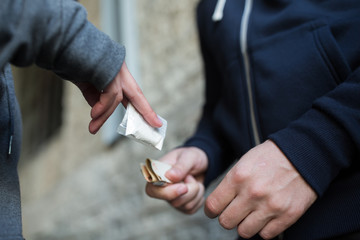Our Fourth Amendment to the Constitution protects the rights of peoples, as follows:
The right of the people to be secure in their persons, houses, papers, and effects, against unreasonable searches and seizures, shall not be violated, and no Warrants shall issue, but upon probable cause, supported by Oath or affirmation, and particularly describing the place to be searched, and the persons or things to be seized.
The first half makes clear that no one should be subject to unreasonable search and seizure. Why were the original founders so adamant?
To understand the Fourth Amendment, we need to understand the reaction in the colonies to three cases in the years before the American Revolution.
The most famous at the time was the case of Wilkes v. Wood, 19 Howell’s State Trials 1153 (C.P. 1763). John Wilkes was a member of parliament who printed anonymous pamphlets criticizing the King. The Secretary of State, Lord Halifax, issued a general warrant allowing officials to search anywhere to discover the creator of these pamphlets. A general warrant gave the British officials blanket authority to conduct searches for anything. Wilkes sued the official who searched his home for trespass saying the warrant issued by the Secretary of State was not a valid justification for searching. The judge in England agreed and said the power of general warrants is “totally subversive of the liberty of the subject… [and] of the most dangerous consequences.”
Similarly, John Entick sued the King’s Chief Messenger, Nathan Carrington, and three others who broke down the door in America and searched the entire home for evidence linking him to publishing pamphlets critical of the king. Entick v. Carrington, 19 Howell’s State Trials 1029 (C.P. 1765). Again, Lord Halifax, Secretary of State, had issued the general warrant. The same judge in England awarded damages for the illegal trespassing. The judge wrote “if this point should be determined in favor of the jurisdiction, the secret cabinets and bureaus of every subject in this kingdom will be thrown open to the search and inspection of a messenger, whenever the secretary of state shall think fit to charge, or even to suspect, a person to be the author, printer, or publisher of a seditious libel.” Entick, 19 How. St. Tr. at 1063. Thus, the law in England was beginning to favor the rights of people over the king’s desire to stop sedition.
In the colonies, the law was not moving this way. In the third case, the Writs of Assistance Case, a group of Boston merchants sued to oppose the writs of assistance being created in Boston. Writs of Assistance gave British customs inspectors blanket search warrants that permitted them to search anywhere for smuggling and authorized British agents to enlist the assistance of other government officials and private citizens to assist with the searches. In short, these writs were open-ended permission to barge into any home of any colonists and search through their belongings for anything.
In 1761, the lawyer James Otis represented a group of Boston merchants opposing these writs of assistance. His lawsuit cast a harsh light of the practice of general searches. John Adams described Otis’s denouncements of the use of writs of assistance as so powerful that “then and there was the first scene of the first act of the opposition to the arbitrary claims of Great Britain. Then and there the child of independence was born.” The excesses of the writs of assistance and the general warrants helped push the colonists to declare their independence from England.
Since the founders had lived is a society where law enforcement could search anywhere for anything, they created the Fourth Amendment to protect people from unreasonable search and seizure.
In the next few weeks, I will look at the current state of search and seizure.

